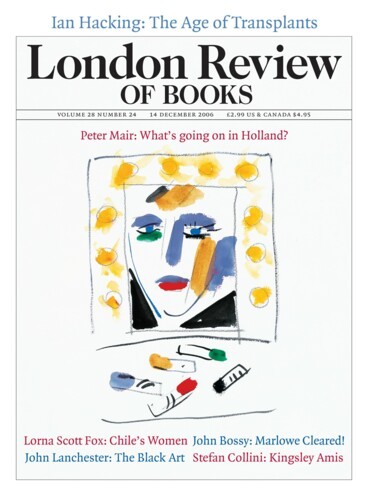Murasaki – I imagined
a dye the colour of mulberries.
A burnet moth’s underwing.
She brushes past Sei Shonagon.
Sleeves in tension.
Both brushes charged with silken resistance.
When she sang it was brocade.
When she modestly whispered,
a most delicate embroidery.
‘Her sash matched her robe.
But did you notice the lining of her sleeve?
I could have laughed all evening!’
The wisteria in its tub, whose ancient stem
and transient clusters you comprehended clearly,
but which you did not know how to prune.
How many such cultivated
and also promiscuous ladies
have I wished to have been acquainted with?
Late afternoon rain,
then sun on the raspberries –
I so wanted to show you.
How vulgar would you think it
to express my predilection
for these extra yellow quinces?
Please tell me: how, culturally, could we
be more different? Yet I, with minor, bemused
reservations, am drawn entirely to your aesthetic.
So many little rules.
How delicious to break one!
We’ll mend these fragments into something.
His long night’s escapade.
Does inherited custom demand
rupture of tradition?
Dilapidated mansion. Tangled thickets.
Behind a screen,
she waits for moon-rise.
Having sunk to this obscurity
she still plies the koto.
No one behind screens to listen.
Shut in from sunlight,
she keeps company with rain and music.
Wasting beneath powder.
What happens in the Genji?
Births, fixation, death and an eroticism by subterfuge
delayed tantalisingly by the complicated exchange of waka.
The plum which in the 16th century was
supplanted by the cherry. Aesthetically staggered,
do they now blossom in competition?
Lamp light. Moon-rise.
I look up. Does the moon, too,
say I?
The floating world.
We move within it.
It. We. Tangle and illusion.
High above the city, he searches out
two things that grow together:
wild herbs and the sutras.
It is comparatively simple to satisfy desire.
But to die without studying the sutras …
Still, it makes little difference.
A poignant meditation on the doctrine of anicca.
Then all at once
they’re playing football.
Guarding against presenting things
only in the best possible taste,
thus he expressed an asymmetrical aesthetic.
A trunk that grew lichen.
A stone that happened to
lie on the mountain.
I know how loud and irregular noises
disturbed you. I too live
in your ideal silence.
To be old and still young.
At once female and male.
We are all one person.
You would be astonished
at the squalor of European history.
But you would have liked Jane Austen.
Spirit possession.
The hysterical luxury
of existence as two people.
No longer even dust.
Your you became
someone else’s brush strokes.
Waley on his deathbed.
Neither he nor his space.
But now equal with not-you in north London traffic.
‘Genji was dead. And there was no one like him.’
Punks eat sushi.
Mono no aware. Lacrimae rerum.
These MSN and Myspace girls whose virtual selves
fire off keyboard fantasías: they, as with Genji’s
women, gossip apprehensively behind their screens.
There they all must be
in Ambitabha’s garden, where birds and rivers
sing unintelligibly in Sanskrit.
The Bridge of Dreams joins two absolute spaces.
We rush across the surface
not knowing where we were or where we’re headed.
Hokku faxed from a tobacconist.
Syllabically hopping,
to Tokyo they yo yo.
Murasaki Shikibu was the 11th-century author of The Tale of Genji, which contains almost a thousand classical verses. Sei Shonagon was her contemporary and the author of The Pillow Book.
Koto: a zither-like instrument
Waka: classical verses
Mono no aware: ‘the pitiful transience of existence’
Anicca: impermanence
Ambitabha: the Buddha of the Western Paradise or Pure Land
Hokku: 17-syllable verse
Send Letters To:
The Editor
London Review of Books,
28 Little Russell Street
London, WC1A 2HN
letters@lrb.co.uk
Please include name, address, and a telephone number.

